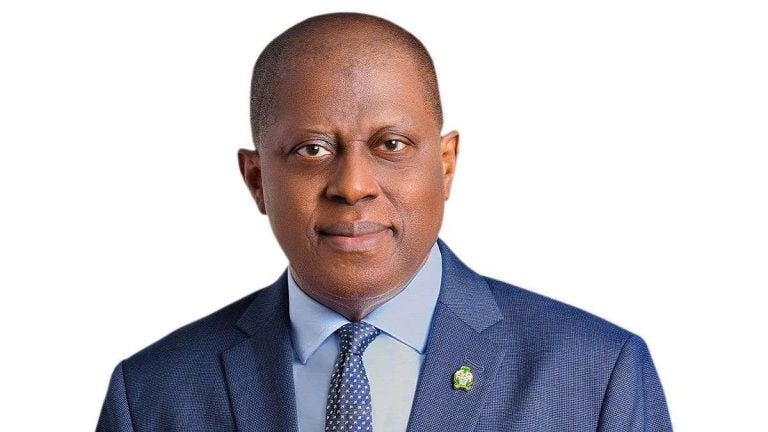CBN Defends Naira with US$4.7bn in First Half of 2025
By Marketforces Africa-
Yemi Cardoso, CBN Governor
The Central Bank of Nigeria (CBN) defended the naira with $4.7 billion across several foreign exchange market interventions to keep the local currency safe from losing value significantly as offshore investors ’exited positions while in search of safe haven.
Forex market analysts believe that the authority’s decision to defend the local currency was borne out of necessity, claiming that global disruption witnessed across financial markets could have eroded the value of the naira significantly.
In the first quarter of the year, naira stability was threatened due to elevated global risk-off sentiments triggered by U.S. trade policies and heightened geopolitical tensions. The U.S. administration’s tariff war with key trading partners and some developing African countries redefined globalization of trade.
Offshore investors moved out funds across markets in search of a safe haven. After imposing steep tariffs in January, President Donald Trump maintained a hard line through the first half of the year, raising levies on Chinese goods to eye-watering levels, which prompted equal retaliation from Beijing.
The tit-for-tat measure rattled financial markets, and Nigeria, which has its share of tariff hikes, was not spared. The external shocks led to FX outflows of $22.83 billion, as some investors shifted capital to U.S. Treasuries and gold, investment firm CardinalStone Partners Limited said in an update.
First quarter was a bit tough for the naira, but the CBN rose to the occasion with a series of FX injections to keep the supply side strong. In a report, Verto FX said there was near limitless availability of US dollars through local authorized dealer banks via the Nigerian foreign exchange market, suggesting aggressive FX injections from the Apex Bank.
Offshore investors were moving out of Nigeria’s financial markets, and the huge capital outflow pushed the exchange rate higher in the absence of US dollar accretion. In response, the CBN was active in the FX market, selling $4.72 billion in the period, CardinalStone revealed in its macro update for the half of the year.
Some market critics, however, believe that the aggressive FX intervention showed that the naira cannot survive alone in the currency market with the visible hands of the monetary authority.
The CBN had said the daily exchange rate will be determined by willing buyer, willing seller transactions as part of its forex market reforms. Many economic analysts believe that, without intervention, the exchange rate would have significantly increased.
The successive interventions of the CBN was possible because of a sufficient buffer provided by the external reserves. “Contrary to concerns, we do not believe these interventions signaled a return to a fixed exchange rate regime or reflected an attempt to target a specific level for the naira. Rather, the current FX framework allows for discretionary interventions in the presence of perceived market distortions,” CardinalStone said.
It is clear that the distortions witnessed in H1’2025 largely stemmed from global factors and not idiosyncratic factors, as the CBN has taken steps to improve transparency, the investment firm said.
CardinalStone highlighted that CBN’s average monthly FX intervention came in at $786.58 million, materially lower than the $2.30 billion pre-COVID and $1.38 billion post-COVID levels previously used to defend the naira at unsustainable levels, despite underlying macro weaknesses.
Encouragingly, both local and international observers now generally agree that the naira is trading close to its fair value, the firm stated. In addition to capital outflows, the CBN also had to meet external debt service obligations, estimated at $2.00 billion in the first four months of the year—the most recent data available.
At the current pace, these obligations are on track to surpass last year’s levels and could potentially reach new highs, CardinalStone said, adding that the mounting pressure compelled the CBN to increase FX supply in order to support FX liquidity.
MarketForces Africa



